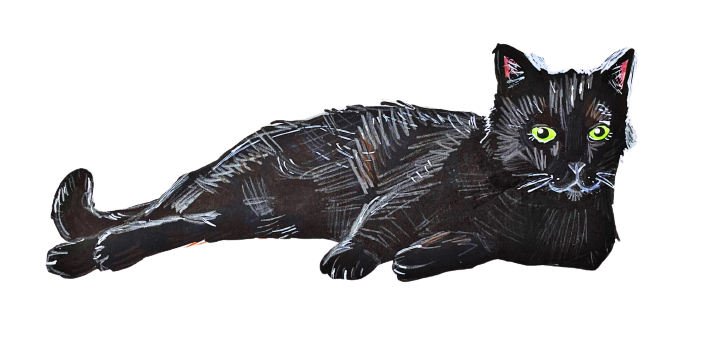At Texas A&M, stray cats roam the campus in colonies. While passing visitors know of the furry ferals, students are concerned about the threats stray cats pose to A&M’s biodiversity as a highly adaptable invasive species.
Stray cats can contribute to the spread of illnesses like toxoplasmosis, which induces headaches and swelling, and results from parasites found in cat feces. These parasites can easily become an invasive species if introduced into ecosystems, biochemistry junior Ian Mattingly said.
“They are a threat due to their ability to make many smaller animals and birds in their area virtually extinct,” Mattingly said. “Since they are an invasive species, in most cities with overgrown populations of cats, many local prey aren’t adept to the cats and therefore make their extinction much more likely.”
Mattingly said most of the blame falls on humans for continuing to let domestic cats thrive in nature and around A&M.
“As a cat lover, this is not the cats’ fault,” Mattingly said. “It’s humans for not properly accounting for the cat population [growth] and the effect they can have on the local population. If humans kept their cats indoors, they would live longer, healthier lives and wouldn’t cause such destruction to the environment.”
Local organizations have banded together to care for stray cats in the area. Various trap, neuter and return programs have been tested before as well, such as a study at A&M where 123 strays were captured and neutered, resulting in no new cat clowders, or groups of cats, found the following year.
Similar initiatives, like the BCS Spay Neuter Project, have resulted in over 4,100 local cats being neutered and over 600 adopted in an effort to reduce stray populations in Bryan-College Station.
International studies sophomore Lisette Rodriguez said cats are a problem because they are responsible for disturbing local ecosystems.
“I usually have seen dead animals being brought by [cats], and [that’s] a problem since they take away resources from other animals,” Rodriguez said. “They are responsible for killing many animals, like crickets, and are tough on the environment.”
Rodriguez said people should be spaying and neutering their cats to minimize the threat they pose.
“Catching, spaying and neutering the cats will keep them from being so invasive,” Rodriguez said. “This way, there won’t be as many cats killing other animals and taking away resources.”
Biology sophomore Valeri Chica said cats harm biodiversity at A&M, as it disturbs nature’s sensitive balance.
“Outdoor cats are pretty bad on biodiversity, and they hunt animals like owls and hawks that otherwise wouldn’t have as many natural predators,” Chica said. “Biodiversity on campus is [already] pretty much damaged based on all the concrete and construction that goes on. All the birds and small animals would be very sensitive to cats.”
Chica said outdoor cats’ health is also affected if they become feral and start consuming dead animals and waste.
“I have heard mixed feedback on whether cats should be kept inside,” Chica said. “However, it’s not great to let them outside because they get into trash and eat rats and mice [that] were killed by poison already. The best practice is, if you have a pet cat, then keep it inside most of the time.”
Felines: Friends or foes?
Hilani Quinones, Assistant News Editor
October 18, 2023
0
Donate to The Battalion
Your donation will support the student journalists of Texas A&M University - College Station. Your contribution will allow us to purchase equipment and cover our annual website hosting costs.
More to Discover
About the Contributor

Hilani Quinones, Assistant News Editor
Hilani Quinones is an Honors Political Science sophomore from Brownsville, Texas double minoring in History and English and pursuing a certificate in Legal History. She began writing for The Battalion in August 2023 and has started serving as Assistant News Editor in January 2024. Hilani has covered news primarily regarding Texas politics, student government, and student issues. After graduation, Hilani aims to obtain a JD degree and pursue a career in law or media.









